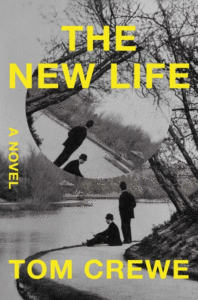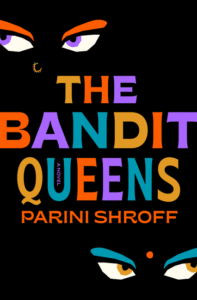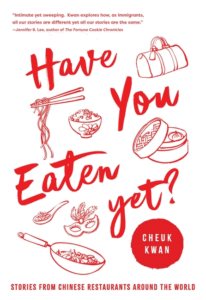
What Should You Read Next? Here Are the Best Reviewed Books of the Week
Featuring New Titles by Tom Crewe, Parini Shroff, Martha C. Nussbaum, and More

Tom Crewe’s The New Life, Parini Shroff’s The Bandit Queens, Martha C. Nussbaum’s Justice for Animals, and Matthew Dennison’s Roald Dahl: Teller of the Unexpected all featuring among the Best Reviewed Books of the Week.
Brought to you by Book Marks, Lit Hub’s “Rotten Tomatoes for books.”
*
1. The New Life by Tom Crewe
(Scribner)
6 Rave • 1 Positive
Read an excerpt from The New Life here
“Intricate and finely crafted … There is always a narrative risk when recapitulating events in historical fiction—predetermination can deaden the pulse. Crewe, who earned his Ph.D. in 19th-century British history from the University of Cambridge, makes no such error. He attentively constructs rich, human motivations and contradictions for his fictionalized renderings of John and Henry … Crewe uses the interior depth of John and Henry to build intrigue, creating provocative developments even without the use of overtly dramatic plot points …
The New Life brims with intelligence and insight, impressed with all the texture (and fog) of fin de siècle London. Crewe’s prose is stylish and precise, reminiscent of Alan Hollinghurst’s. The novel falters only in its later chapters, when John begins a self-destructive streak that is too flatly written to be believable. Otherwise, the writing is exquisite … For all its historical fixtures, the novel is energized by timeless questions.”
–Peter Kispert (The New York Times Book Review)
2. The Bandit Queens by Parini Shroff
(Ballantine)
3 Rave • 1 Positive • 1 Mixed
Read an essay by Parini Shroff here
“Shroff’s debut novel is at once immensely sad—women want Geeta to help them get revenge on rapists and even a husband who threw acid on his wife’s face—but it has laugh-out-loud moments too, as the women learn to stand up to the men in their village, and Geeta forms a relationship with a good man and learns to make friends … This is a deeply human book, with women surviving and overcoming in their culture while still remaining a part of it.”
–Jennie Mills (Library Journal)
3. Brotherless Night by V. V. Ganeshananthan
(Random House)
3 Rave • 1 Positive
Read an essay by V. V. Ganeshananthan here
“Perhaps Ganeshananthan’s finest achievement in Brotherless Night is showing, with meticulous accuracy, what it feels like to inhabit a day-to-day life onto which someone else, from the privilege of great distance, can throw a word like ‘terrorism,’ and be done … Ganeshananthan is a writer of remarkable restraint. Occasionally a precious exclamation mark finds its way into an especially cataclysmic scene, or the narrator might feel the air rushing out of her lungs or her hand involuntarily covering her mouth at the news of a loved one’s death; but otherwise the prose is almost unsatisfyingly steady. And yet, in tone and emotional register, Sashi’s storytelling is a perfect fit for the delicate balance she is forced to walk by virtue of living in a society where running afoul of the dominant forces, saying the wrong thing, leveling too impassioned a rebuke, can prove a capital offense … The narrator’s deliberative mode of describing her life feels, by the end of the novel, like the only way this story could have been told … And when she wants to, Ganeshananthan can loosen her restraint to pull off gorgeous sentences.”
–Omar El Akkad (The New York Times Book Review)
**
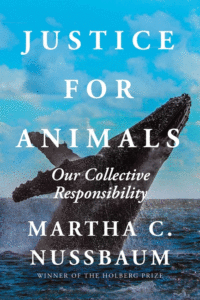
1. Justice for Animals: Our Collective Responsibility by Martha C. Nussbaum
(Simon & Schuster)
3 Rave • 1 Positive
“Urgent … In this brilliant and accessible work, Nussbaum develops an account of the moral lives of animals that is stronger than other philosophers’ accounts and relevant to the efforts of humans seeking to build a better, more just world for all animals … Although Justice for Animals is written to address general readers, Nussbaum works through, in lively and accessible fashion, key philosophical questions about animals and ethics … Nussbaum does not avoid difficult questions … All readers, not only readers already committed to animal rights, ought to read Nussbaum’s new book. Following Nussbaum’s arguments, we can discover new ways of seeing animals with wonder and compassion. And we can hone our senses of outrage and use that outrage to fuel our efforts to build a better world for all us animals.”
–Ross Collin (Chicago Review of Books)
2. Have You Eaten Yet?: Stories from Chinese Restaurants Around the World by Cheuk Kwan
(Pegasus Books)
1 Rave • 4 Positive
“Flavorful descriptions of foods mix with adventuresome travel mishaps. Less-remembered history surrounding the Ming dynasty’s venturing into Africa, and how Chinese people fared under apartheid, enrich the book, while sprinklings of film references are hip, atmospheric flourishes. Here, traveling encompasses word-of-mouth scouting for film locations from the Amazon to Norway, but also lessons in ethnography. The stories of women in particular are resounding, encompassing both vulnerability and stalwart resolve. Have You Eaten Yet? is a fascinating, inquisitive global search for Chinese tastes that evoke home in any corner of the world.”
–Karen Rigby (Foreword Reviews)
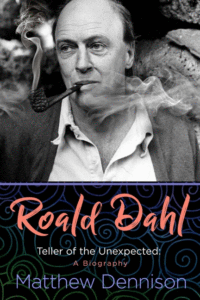
3. Roald Dahl: Teller of the Unexpected by Matthew Dennison
(Pegasus Books)
1 Rave • 4 Positive • 1 Mixed • 1 Pan
“A sadness pervades this book: despair. Dahl had pockets of tenderness—he gave the fee from one magazine piece to an airman’s widow, and he tried to answer all the letters he received from children—but I think this book is a portrait of depression, which is buried rage … This book is riveting, and immaculately written. What it lacks—probably because Dahl himself did—is a vivid inner life: it is as if he gave it all to the novels. There is something shrouded about Dennison’s account, something unspoken … Reading Dennison’s account, all I can feel is pity, for a man so raging, and a boy so lost.”
–Tanya Gold (The Telegraph)
Book Marks
Visit Book Marks, Lit Hub's home for book reviews, at https://bookmarks.reviews/ or on social media at @bookmarksreads.









